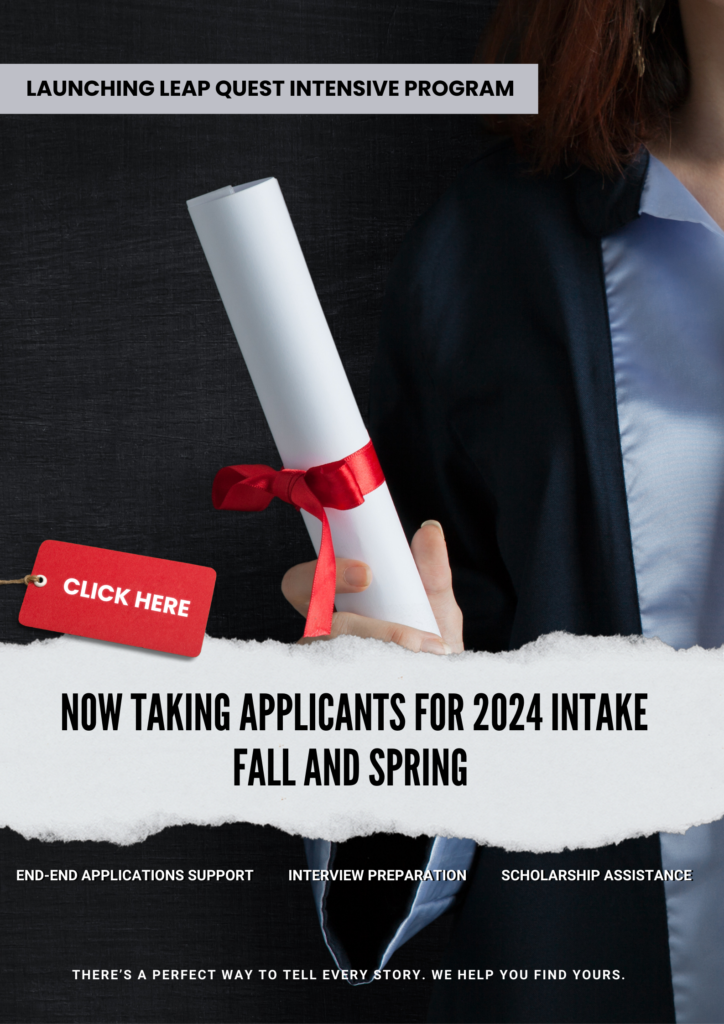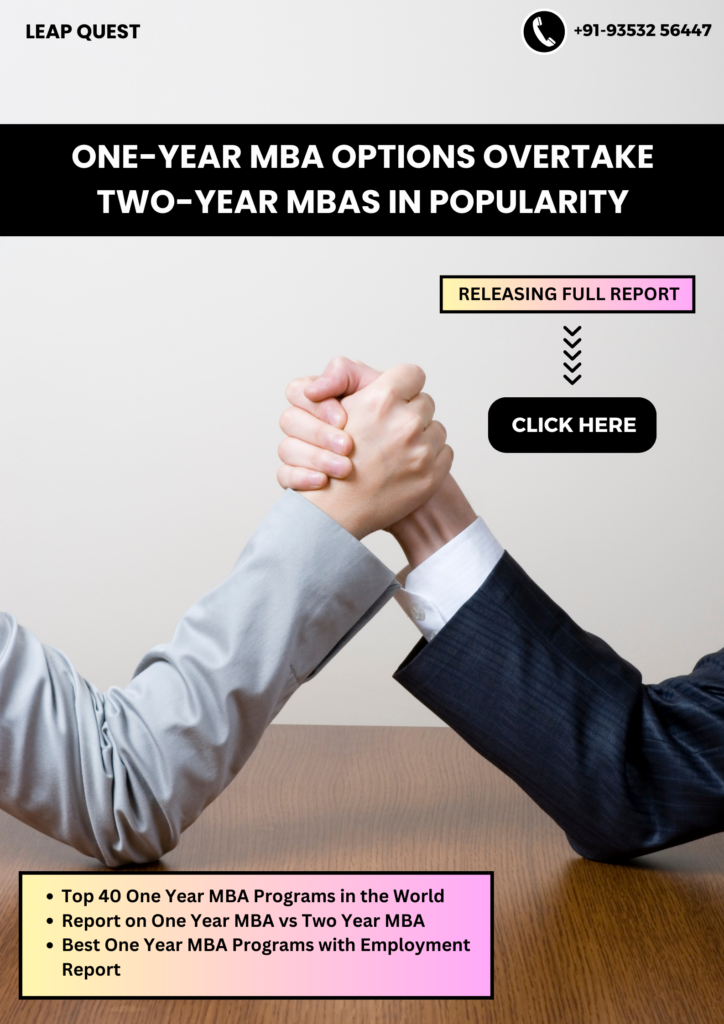The Benefits of Applying to the Top 50 MBA Programs in the World
Securing admission to one of the top 50 MBA programs globally is a dream for many aspiring business leaders. These prestigious institutions offer unparalleled opportunities, resources, and networks that can significantly impact your career trajectory. At Leap Quest, we understand the myriad benefits these top-tier programs provide and how they can shape your professional and personal growth. Here’s an in-depth look at the advantages of applying to the top 50 MBA programs, with specific examples to illustrate their value. 1. Exceptional Quality of Education Harvard Business School (HBS): As a consistently top-ranked MBA program, HBS offers a rigorous curriculum that emphasizes leadership, innovation, and entrepreneurship. The case method of teaching at HBS fosters critical thinking and decision-making skills, preparing students for real-world business challenges. Stanford Graduate School of Business (GSB): Known for its focus on personal leadership development and innovation, Stanford GSB provides a unique blend of theoretical knowledge and practical application. The school’s proximity to Silicon Valley offers unparalleled access to the world’s leading tech companies and start-ups. 2. Global Recognition and Prestige Wharton School at the University of Pennsylvania: Wharton’s reputation as a finance powerhouse attracts top recruiters from around the globe. An MBA from Wharton signifies a high level of expertise and competence, opening doors to prestigious roles in various industries. INSEAD: With campuses in Europe, Asia, and the Middle East, INSEAD offers a truly global MBA experience. The school’s emphasis on diversity and international exposure prepares graduates for leadership roles in multinational companies. 3. Access to Extensive Alumni Networks London Business School (LBS): LBS boasts a strong and active alumni network that spans the globe. Graduates benefit from lifelong connections and support, enhancing their career opportunities and professional development. Kellogg School of Management at Northwestern University: Kellogg’s collaborative culture fosters strong bonds among students and alumni. The school’s extensive alumni network is instrumental in career advancement, providing mentorship, job opportunities, and business partnerships. 4. Enhanced Career Opportunities MIT Sloan School of Management: MIT Sloan’s focus on innovation and technology attracts top employers from the tech and consulting sectors. Graduates are highly sought after for their analytical skills and ability to drive innovation in their organizations. Columbia Business School: Located in the heart of New York City, Columbia Business School offers unparalleled access to major financial institutions and Fortune 500 companies. The school’s strong industry connections translate into excellent job placement rates and high starting salaries for graduates. 5. Diverse and Inclusive Learning Environment IE Business School: IE’s commitment to diversity is reflected in its student body, which includes individuals from over 90 countries. This multicultural environment fosters a global mindset and enhances cross-cultural communication skills, essential for success in today’s interconnected world. University of California, Berkeley, Haas School of Business: Haas is known for its diverse and inclusive community. The school’s emphasis on social responsibility and sustainable business practices prepares students to lead ethically and inclusively. 6. Cutting-Edge Research and Innovation University of Chicago Booth School of Business: Booth’s faculty includes renowned researchers and thought leaders in economics and finance. The school’s emphasis on data-driven decision-making equips students with the analytical skills needed to excel in complex business environments. HEC Paris: HEC Paris is a leader in business research, particularly in strategy and entrepreneurship. The school’s strong focus on research and innovation ensures that students are at the forefront of the latest business trends and practices. 7. Leadership Development and Personal Growth Duke University’s Fuqua School of Business: Fuqua’s Leadership Development Program helps students develop their leadership skills through experiential learning and personalized coaching. The program’s emphasis on self-awareness and emotional intelligence is crucial for effective leadership. Yale School of Management: Yale SOM’s integrated curriculum focuses on developing leaders who can navigate complex global challenges. The school’s unique approach to leadership education emphasizes the importance of understanding the broader social and environmental impacts of business decisions. 8. Entrepreneurial Ecosystems and Support Harvard Business School: HBS provides extensive resources for aspiring entrepreneurs, including the Harvard Innovation Labs (i-lab) and the Rock Center for Entrepreneurship. These resources offer mentorship, funding, and networking opportunities to help students turn their business ideas into reality. Stanford Graduate School of Business: Stanford GSB’s close ties to Silicon Valley provide unmatched opportunities for entrepreneurship. The school’s Center for Entrepreneurial Studies offers a range of programs and resources to support student entrepreneurs at every stage of their journey. Conclusion Applying to the top 50 MBA programs in the world is a strategic investment in your future. These programs offer a blend of rigorous academics, global recognition, robust alumni networks, and unparalleled career opportunities. At Leap Quest, we are committed to helping you navigate the application process and present a compelling case for admission to these prestigious institutions. Our comprehensive support ensures that every aspect of your application reflects your potential and readiness to excel in a top-tier MBA program. Click Here To Contact us All the Best Leap Quest







